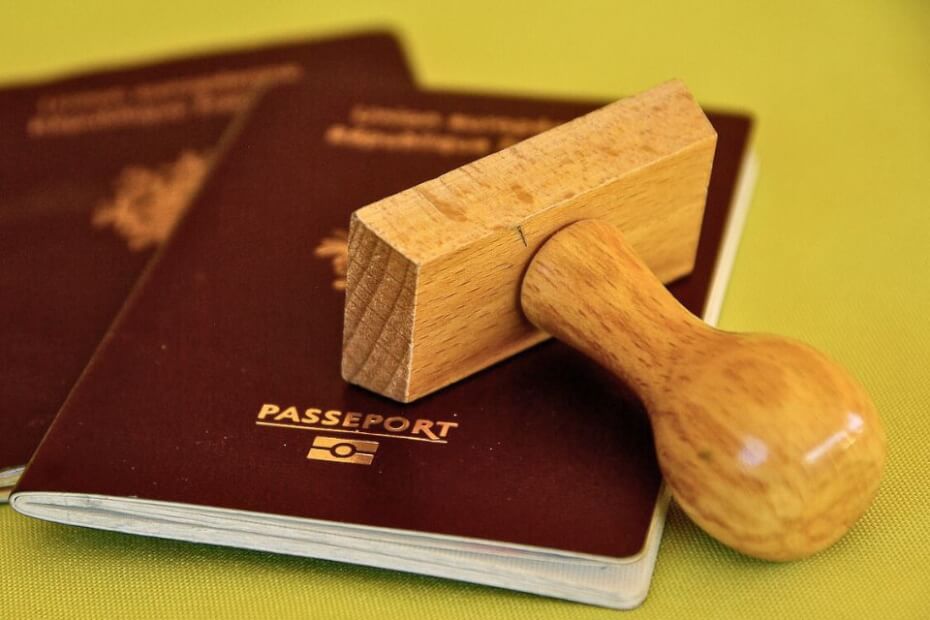
A crowd-sourced website has launched a petition to amend United Kingdom (UK) passports post-Brexit.
Since the UK left the European Union (EU), hundreds of travelers have been turned away at airports due to invalid passports.
While their UK passports are valid before expiry dates, they are no longer valid for travel.
Passport Waiting Time, a crowd-sourced data platform that logs passport processing times, has launched a petition to amend UK passports.
In particular, the petition asks that a “renew by” date be printed inside UK passports.
This would indicate the latest date by which a passport should be renewed to meet passport validity rules for other countries.
It would also help passport holders to know when their passports are due to expire and when they should be renewed to remain valid for travel.
“If we are successful with our petition, it will make it much clearer for passport holders to know when to initiate the renewal process,” Andy Anderson, founder of Passport Waiting Time, told iNews.
He added that it would also “further reduce the risk of missed holidays” for UK citizens, as well as wasted resources such as money and time.
Passport Waiting Time has also launched its own passport reminder service.
Those who signed up for the service will be notified when they should start preparing to renew their passport.
Anderson said their reminder service will help prevent British tourists from being turned away at the airport.
The website’s renewal notification will give holders plenty of time to ensure their passport remains valid for all countries.
UK passports must meet two conditions to enter the EU
Four years after Brexit, there is still much confusion about the validity of UK passports when traveling to the EU.
Before Brexit, British citizens could travel to the Schengen Area until the expiration date indicated in their passports.
Post-Brexit, UK nationals are considered third-country nationals and are subject to third-country immigration rules.
For British passports to be valid for travel to the EU, they must meet two conditions:
- The passports must not be over ten years old on the day of outbound travel.
- On the return journey home, the passport must have at least three months before expiry.
As third-country nationals, UK citizens are only allowed to enter the EU with three months remaining on their passport validity by the time they leave.
However, the British government strongly advises its citizens to travel with passports that are valid for at least six more months.
This is crucial for a 90-day visa-free visit for British citizens in the Schengen Zone within a 180-day period.
UK citizens with at least six months remaining on their passport can travel to the EU for up to 90 days and still have a valid passport upon exit.
UK passport requirements for travel outside the EU are less strict but vary by destination.
Some countries, especially in Asia and Africa, require UK passports to be valid for six months beyond departure.
Other countries only require validity for the stay duration.
To avoid issues, British travelers should check the UK Foreign Office website for specific entry requirements.
More upcoming travel checks at UK-EU borders
British travelers will soon face new travel checks when visiting the Schengen Zone.
The EU’s Entry/Exit System (EES) will replace manual passport stamping at its external borders starting in October 2024.
Instead, the EES will record non-EU travelers’ entry and exit through biometric data such as facial and fingerprint scans.
Non-visa nationals, such as UK citizens and short-stay visa holders, must register passport and biometric data for the EES.
Aside from the EES, the EU will implement its electronic visa waiver system for non-visa nationals by mid-2025.
The European Travel Information and Authorization System (ETIAS) will cost €7 per application. It allows multiple short visits to the EU for three years.
It works similarly to the UK’s Electronic Travel Authorization (ETA), which will also be mandatory for all non-visa nationals.
Non-visa nationals must apply for an ETIAS or ETA before being allowed to travel to the Schengen Zone or the UK.
By the end of 2024, all non-visa nationals, including EU citizens, will need an ETA to travel to the UK.

